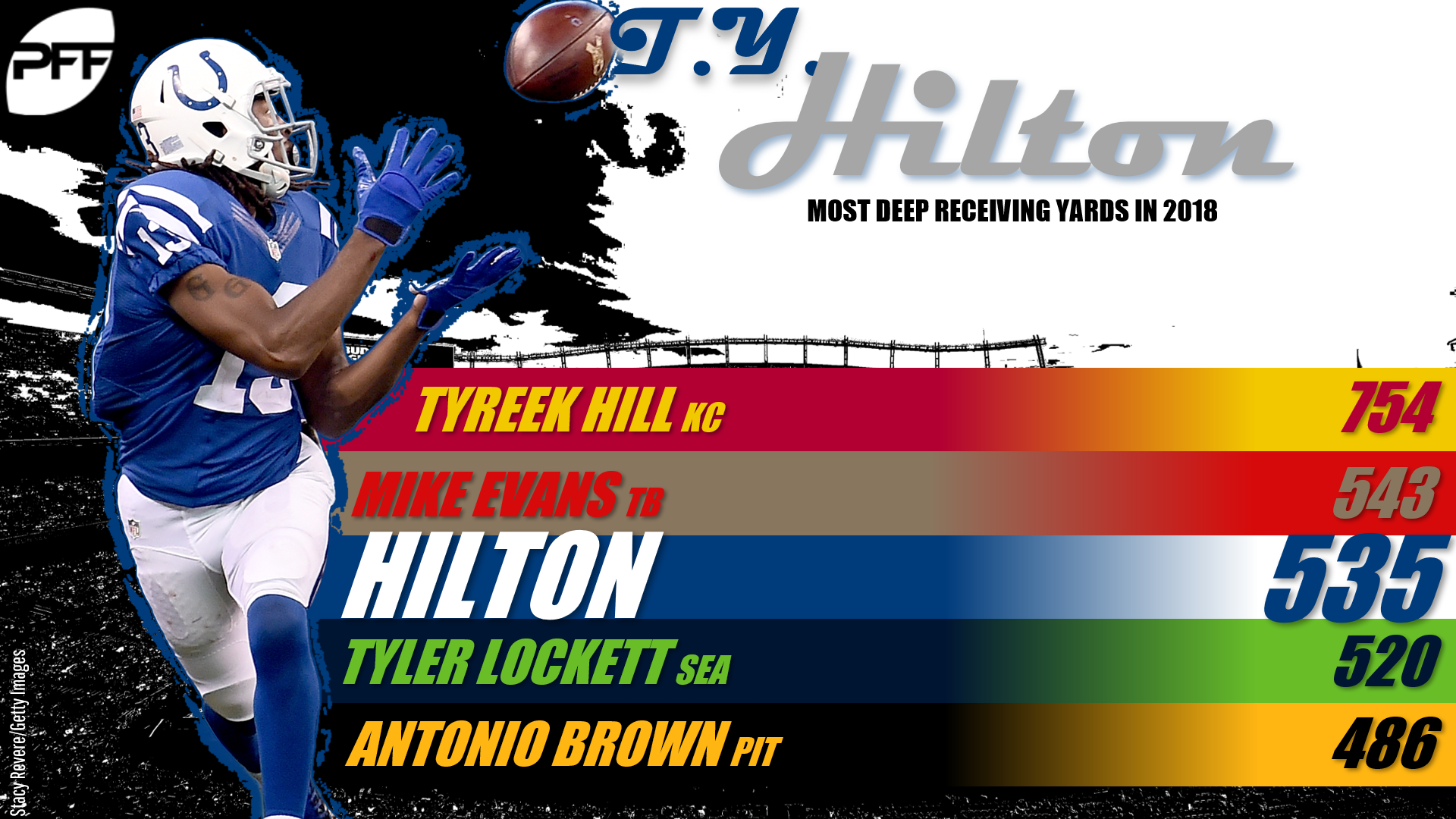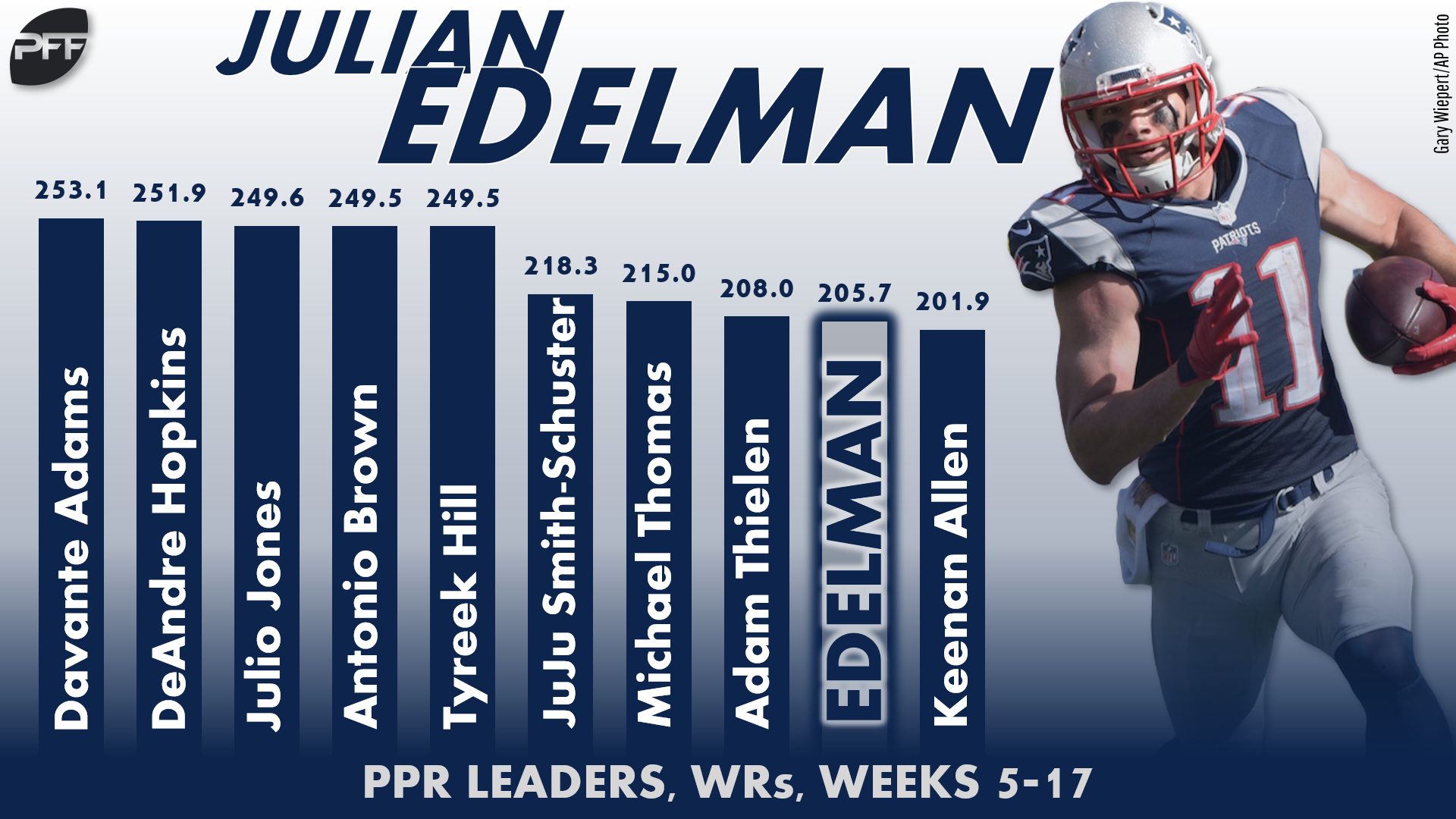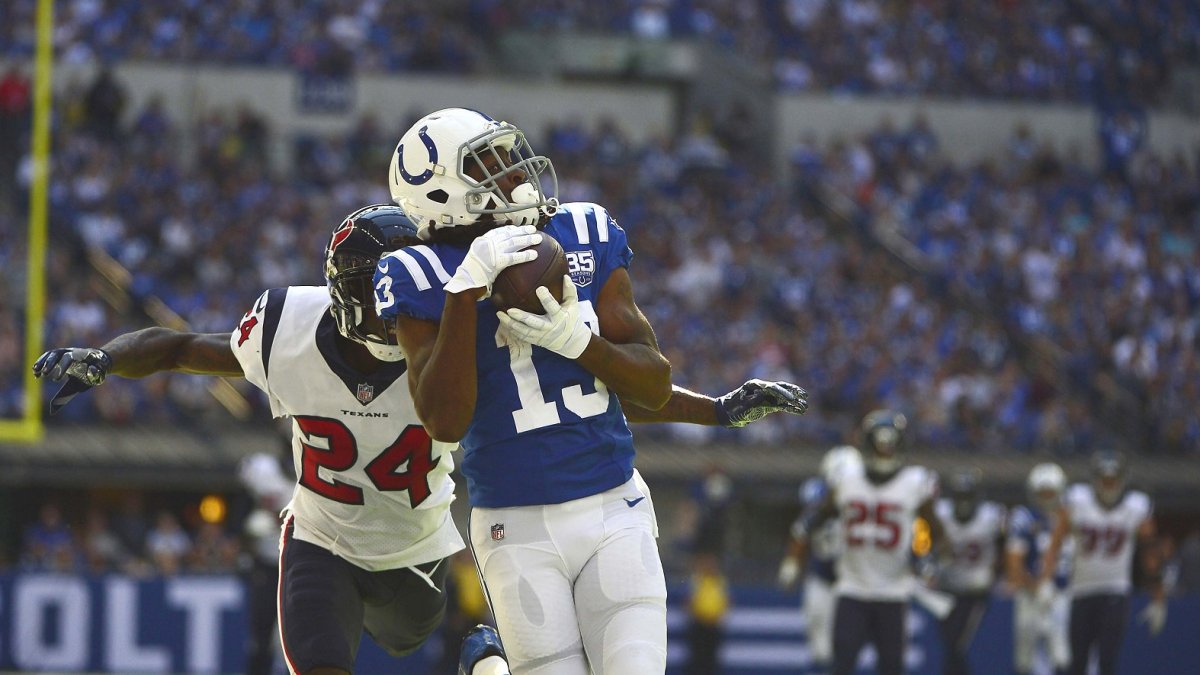This week, for the Divisional Round of the playoffs, we’ll be looking at each positional grouping at each team and examining their DFS value and fantasy football upside on both DraftKings and FanDuel. Below is the look at the quarterback position.
(Click for quarterbacks, running backs, tight ends)
Before digging too deep into the specific players on this slate, I did want to mention two important notes this week:
On a typical full-game slate, I want to feel comfortable with every player I’m rostering. Ideally, even my punt-plays are tremendous values with high-upside. On a shorter slate like this (four games, eight teams) it’s okay to roster a relatively “gross” name if you feel they give you a stronger lineup overall – allowing you to pay up elsewhere.
I can’t stress enough the importance of late-swap on these smaller slates. If you have any tournament lineups that, after a bad game or two, seem unlikely to cash, you have nothing to lose and everything to gain by adding exposure to some “riskier” lower-owned players.
Notes: All numbers in parentheses refer to a player’s salary rank on each site.
Matchups (overall): Among all 32 NFL teams, the Eagles rank third-worst in schedule adjusted fantasy points per game allowed to opposing wide receivers. The Chiefs (sixth-worst), Saints (eighth-worst), and Rams (10th-worst) are all bottom-10. The Chargers (fifth-best), Cowboys (sixth-best), and Colts (seventh-best) are all top-10. The Patriots are perfectly average.
Matchups (outside): Among all 32 teams, the Eagles rank worst and the Saints second-worst (and by a wide margin over third) in fantasy points per game allowed to opposing outside wide receivers. The Colts rank seventh-best, while all other teams are about average.
Matchups (slot): The Patriots are giving up the fourth-most fantasy points per game to opposing slot wide receivers and have ranked bottom-six for three straight years. The Rams are giving up the seventh-most. On the opposite side of the spectrum, all of the Chargers (best), Eagles (fourth-best), Colts (sixth-best), and Cowboys (ninth-best) rank top-10. The Saints and Chiefs are just about perfectly average.
Matchups (deep): Several teams are especially vulnerable to deep passes, though we should remember gamescript plays a role in this stat. The Rams (third-worst), Saints (fourth-worst), Eagles (seventh-worst), Chiefs (eighth-worst), and Patriots (ninth-worst) all rank bottom-10 in deep fantasy points allowed per game to opposing wide receivers. The Colts and Chargers rank top-seven. On a per-target basis, the Rams rank worst-overall, while the Saints and Colts remain bottom-10.
Matchups (designation): In terms of schedule-adjusted fantasy points per game to opposing WR1s, the Eagles (second-worst), Rams (fifth-worst), and Saints (sixth-worst) all rank bottom-six. The Chargers (sixth-best) and Colts (seventh-best) rank top-seven. All other teams are about average. To WR2s, the Saints rank second-worst, while the Eagles (seventh-worst) and Chiefs (ninth-worst) also rank bottom-10.
Kansas City Chiefs wide receivers (v. IND)
This season, Tyreek Hill (DK: WR2, FD: WR2) has three games with 40 or more DraftKings fantasy points this year and five with 30 or more DK fantasy points. He's also had eight games with fewer than 15 DK fantasy points. Due to his massive upside, Hill can absolutely ruin your week if you don’t have him and he goes off. If making multiple lineups, he demands exposure. Still, at salary, I actually prefer Travis Kelce on both sites when forced to choose (though, of course, you can roster both). The Colts are an exceptionally tough matchup to wide receivers, deep threats, and WR1s, but far more vulnerable to tight ends. I suspect Indianapolis will give Hill the same treatment they gave to DeAndre Hopkins last week and in Week 14. Pierre Desir shadowed Hopkins in both of those games (68% of his routes) with added safety help over the top. In those two games, Hopkins combined for just a 9-73-1 line on 19 targets. That said, Hill is a special talent and can overachieve in any matchup.
Sammy Watkins (DK: WR13, FD: WR13) hasn't played in any of Kansas City's last six games. Over that span, all other non-Hill Kansas City wide receivers combine for just two games with 10 or more fantasy points: 11.5 fantasy points for Chris Conley (DK: WR20, FD: WR26) in Week 13 and 15.9 fantasy points for Demarcus Robinson (DK: WR18, FD: WR20) in Week 17. Robinson has touchdowns in three straight games but has also exceeded two receptions just once over his last six games. Conley was held without a catch last week and has topped two catches just once over his last four games. Both are low-upside touchdown-or-bust punt plays. If Watkins plays (he’s questionable), this will likely move Robinson to the bench for the majority of the game. A banged-up Watkins is especially risky but would have been risky either way. Watkins has scored over 15 fantasy points in three games this year and under 12 fantasy points in six games. He’s vaguely in play but there are better low-priced options this week.
Indianapolis Colts wide receivers (@ KC)

The Chiefs are giving up the eighth-most fantasy points per game to wide receivers on deep passes, which suits T.Y. Hilton (DK: WR3, FD: WR3) well given his skillset (third-most receiving yards on deep passes). However, by all other measures (outside of the massive over/under) it’s only a slightly above-average matchup for Hilton. Hilton has scored touchdowns in back-to-back games, but also averages just 5.0 targets per game over his last four games. He’s not a must-play by any stretch and does feel overpriced relative to Eric Ebron, but, we know, does have slate-breaking upside.
After Hilton we'll see a three-way committee at the other two wide receiver positions (even with Ryan Grant out). Dontrelle Inman (DK: WR10, FD: WR11) seems expensive, but is in all likelihood a slight value, averaging 16.2 fantasy points per game over his last three. Chester Rogers (DK: WR24, FD: WR22) has seen more volume over this span (16 targets to 15) but was less productive, averaging 11.1 fantasy points per game. However, both were far less productive outside of this three-week sample. Zach Pascal is an easy fade.
Los Angeles Rams wide receivers (v. DAL)
Since Cooper Kupp’s injury in Week 10, Robert Woods (DK: WR7, FD: WR5) ranks ninth among all players in expected fantasy points per game (15.9), while Josh Reynolds (DK: WR14, FD: WR16) ranks 24th (12.8) and Brandin Cooks (DK: WR9, FD: WR6) 33rd (12.0). In terms of actual fantasy points per game, Woods ranks 13th (16.4), Cooks 26th (13.1), and Reynolds 46th (11.7).
Among wide receivers on the slate, Woods ranks third in expected and sixth in actual fantasy points per game. That makes him look like a value on DraftKings as their seventh-most-expensive wide receiver, but his matchup doesn’t look great on paper, as Dallas ranks ninth-best in fantasy points per game allowed to opposing slot wide receivers (where Woods runs 53% of his routes).
Cooks has the toughest matchup of the three, running 55% of his routes from Byron Jones‘ side of the field. Jones ranks fourth-best of 94 cornerbacks in fantasy points allowed per route in coverage. That, in combination with recent usage and production, means I’m looking elsewhere this week. Reynolds has the best matchup, running 49% of his routes from Jared Goff’s right, which is where Dallas is giving up the ninth-most fantasy points per game. He’s a strong value on both sites.
Dallas Cowboys wide receivers (@ LAR)
Allen Hurns is out for the year but was only playing a very minor part-time role over the latter half of the season. Cole Beasley (DK: WR24, FD: WR18) is questionable and has not practiced all week. If he’s out, Noah Brown (min. price) is likeliest to operate as the team’s starting slot receiver. Despite his price and the matchup, he’s not someone I’m particularly high on.
Amari Cooper (DK: WR4, FD: WR9) averages 18.0 fantasy points per game since joining Dallas. Over this span, two of his games exceeded 35 fantasy points, four failed to eclipse 8.5 fantasy points, and the other four were between 13.5 and 18.0 fantasy points. He’s particularly hard to analyze. Just note, as has been the case with him throughout the entirety of his career, he carries a good deal of both upside and risk. He’ll run 78% of his routes on the outside, up against Aqib Talib and Marcus Peters. Despite name-brand recognition, that doesn’t mean this is an especially tough matchup. Talib hasn’t shadowed all year and ranks 33rd of 113 qualifying cornerbacks in fantasy points allowed per route in coverage, while Peters ranks 91st. As highlighted at the top, Los Angeles is especially vulnerable to deep passes, which suits Cooper well. He’s a fine play on DraftKings, and one of the better plays at the position on FanDuel.
Michael Gallup (DK: WR19, FD: WR15) has seen six or more targets in five of his last seven games. He’s reached 10.0 fantasy points just four times this year, but three of those games have come over his last six. He’s in play, but probably not my preferred option within his pricing tier.
New England Patriots wide receivers (v. LAC)

Julian Edelman (DK: WR6, FD: WR4) has been the benchmark of consistency this year, while also very quietly pushing fringe WR1 numbers. At his price on DraftKings, he would have been one of my favorite options, if this were any other opponent. Edelman runs 67% of his routes from the slot and the Chargers are far and away surrendering the fewest fantasy points per game to opposing slot wide receivers. That’s enough to leave me looking elsewhere.
Chris Hogan (DK: WR20, FD: WR17) has exceeded two catches in a game just once over his last nine games and now draws Casey Hayward in shadow coverage. That means he’s an easy fade.
Phillip Dorsett (DK: WR23, DK: WR29) has played on 46% of the snaps over his last two games, after playing on just 12% of the snaps across his four prior games. In Week 17, he saw five targets, catching all of them for 34 yards and a score. He was held without a target in each of his previous four games and failed to exceed 6.0 fantasy points in all of his prior 11 games. He’s in play as a low-owned salary saver with upside, but I don’t expect to end up with much of him on my own lineups.
Los Angeles Chargers wide receivers (@ NE)
Per our WR vs. CB Matchup Chart, we’re projecting Jason McCourty to shadow Keenan Allen (DK: WR5, FD: WR8), J.C Jackson on Mike Williams (DK: WR11, FD: WR10), and Stephon Gilmore on Tyrell Williams (DK: WR20, FD: WR23). ESPN’s Mike Clay sees things differently, with Jackson shadowing Allen and Gilmore shadowing Mike Williams. As is usually the case with the Patriots, what this means is, really, we have no idea what Bill Belichick is going to do.
The Patriots are giving up the fourth-most fantasy points per game to opposing slot wide receivers and have ranked bottom-six for three straight years. At the surface level, that implies a top matchup for Allen. However, New England has rightfully earned a reputation for shutting down an opposing offense’s top option, and there’s no doubt that, this week, that’s going to be Allen. New England only faced two truly fearsome slot wide receivers (Adam Thielen and JuJu Smith-Schuster) and they shut both of them down. Allen has also not been very productive, nor has he seen especially good volume (or good enough to warrant his pricetag), in recent weeks.
Given our uncertainty with New England’s cornerback arrangements, this leaves us focusing more on recent volume and production when trying to determine which of the Williams twins to prefer. Over their last three games, Allen totals 18 targets to Mike Williams’ 14 and Tyrell Williams’ nine. Allen leads in fantasy points with 28.9 to Mike Williams' 24.7 and Tyrell Williams 9.4. Tyrell Williams is off my board, while Mike Williams remains a fine play on DraftKings.
New Orleans Saints wide receivers (v. PHI)
Michael Thomas (DK: WR1, FD: WR1) is simultaneously hard to trust and hard to avoid. Over Thomas’ last 13 games, he’s had three games with 13 or more targets, while averaging 6.6 targets per game across the other 10. Even so, he ranks eighth at the position in fantasy points over this span. The last time he played Philadelphia he saw only four targets (remember it was a massive blowout) but he caught all of them for 92 yards and a score. He’ll have a best-possible matchup this week, as Philadelphia ranks worst in fantasy points per game allowed to outside wide receivers (where he runs 69% of his routes) and second-worst in schedule-adjusted fantasy points per game allowed to opposing WR1s.
Tre’Quan Smith (DK: WR17, FD: WR19) had his coming-out party when these two teams last met, catching 10 of 13 targets for 157 yards and a touchdown. With Ted Ginn back (DK: WR15, FD: WR34), however, he’s too risky to draw serious consideration. Keith Kirkwood (DK: WR29, FD: WR23) will play in the slot, but he’s done nothing all year and has a tough matchup. Ginn, meanwhile, running 62% of his routes from the outside, is one of my favorite plays of the week (and a borderline must-play on FanDuel). He was eased back into playing time, returning from injury, in Week 16, playing on only 41% of the snaps, but caught five of eight targets for 74 yards. Before his Week 4 injury, he averaged 6.3 targets and 12.5 fantasy points per game. After two additional weeks off, he should play a full complement of the snaps this week.
Philadelphia Eagles wide receivers (@ NO)
Since Nick Foles has taken over for Carson Wentz, Alshon Jeffery (DK: WR8, FD: WR7) averages a team-high 16.6 fantasy points per game, ahead of Nelson Agholor (12.9) (DK: WR16, FD: WR11) and Golden Tate (8.8) (DK: WR12, FD: WR14). The Saints rank 13th-worst in fantasy points per game allowed to slot wide receivers and second-worst to opposing outside wide receivers. Over this span, Tate has played a part-time role, running a route on only 52% of Foles’ dropbacks and with 80% of those coming from the slot. Agholor is a full-time player and also runs a high percentage of his routes from the slot (46%), while Jeffery runs 89% of his routes from the outside.
On paper, that seems great for Jeffery, but we’re predicting a shadow from Marcus Lattimore. Lattimore has been good this year (our 25th-highest-graded cornerback), but nowhere near as good as last year. In 2017, he ranked 12th of 73 qualifying cornerbacks in fantasy points allowed per route in coverage; this year, he ranks 40th of 85. Lattimore shadowed Jeffery on 62% of his routes in Week 11 and held him to just three yards in his coverage (33 yards for the game). Jeffery isn’t high on my list of names and Tate is almost completely off my board, while Agholor is a fine value on both sites (remember New Orleans is particularly weak to WR2s), and especially on DraftKings.



 © 2026 PFF - all rights reserved.
© 2026 PFF - all rights reserved.